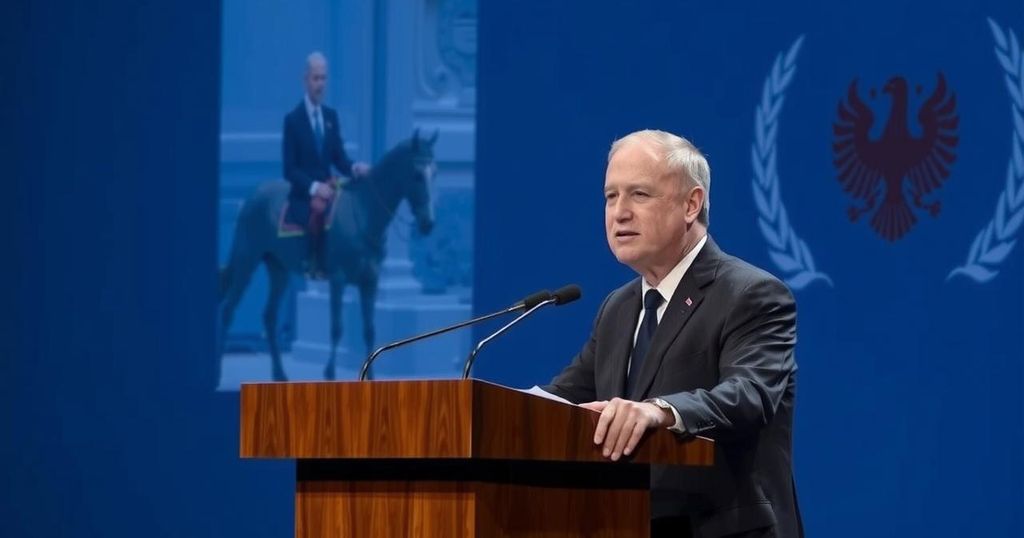At COP29, Albanian PM Edi Rama highlighted the lack of substantial action against climate change by major polluters, questioning the efficacy of the summit. UN Secretary-General Guterres urged wealthy nations to enhance their financial commitments to support vulnerable states, while leaders like Gaston Browne demanded enforcement of climate pledges. The summit comes in the context of rising global emissions, prompting calls for urgent and decisive action.
At the COP29 climate summit in Baku, Edi Rama, the Prime Minister of Albania, criticized the effectiveness of the gathering, lamenting that speeches addressing climate change do little to change the behaviors of the largest polluters. He emphasized that while nations continue to contribute to rising emissions, the meetings seem superficial, likening the atmosphere to attending a party where leaders simply meet and photograph each other without genuine dialogue. Rama posed a poignant question regarding the point of the summit if there is no unified political will among the most polluting nations to enact meaningful climate action. The summit also saw impactful statements from other leaders; UN Secretary-General Antonio Guterres voiced the frustrations of small island nations severely impacted by climate change, calling for increased financial commitments from developed countries to assist those facing existential threats from rising sea levels. Similarly, Gaston Browne, Prime Minister of Antigua and Barbuda, demanded that wealthy nations fulfill their promises regarding a $1 trillion financial deal to aid climate goals, emphasizing that climate change is a daily reality for his people. Muhammad Yunus, economist and Nobel laureate, denounced the prevailing culture of limitless consumption and called for a shift towards sustainable living that prioritizes environmental safety. As countries grapple with climate impacts, there is an urgent need for substantial funding for mitigation and adaptation efforts, with leaders urging for greater equity in climate financing that does not exacerbate existing debt burdens. The meeting highlighted an alarming increase in carbon emissions, signifying the critical need for transformative climate action at all levels.
COP29, the 29th United Nations Climate Change Conference, is serving as a platform for global leaders to discuss strategies to combat climate change effectively. This year’s summit is particularly critical as reports indicate a troubling increase in carbon emissions from previous years, leading to frustration among many nations, particularly those most affected by climate issues, like small island states. Discussion around funding for climate initiatives and commitments from developed nations takes center stage, emphasizing the wider implications of climate action—or inaction—on vulnerable populations across the globe.
The discussions at COP29 underscore a growing discontent among world leaders regarding the lack of significant action to combat climate change, particularly by the largest polluters. Edi Rama’s critiques reflect a shared sentiment that mere words are insufficient without corresponding efforts toward real change. As calls for justice and equitable financial support increase, the urgency to address climate change grows ever more pressing for all nations involved. Leaders are collectively pushing for tangible commitments that will not only alter the trajectory of emissions but also provide vulnerable nations with the support they desperately require to adapt and mitigate their climate-related losses.
Original Source: www.theguardian.com






